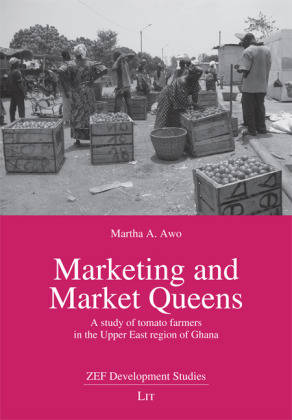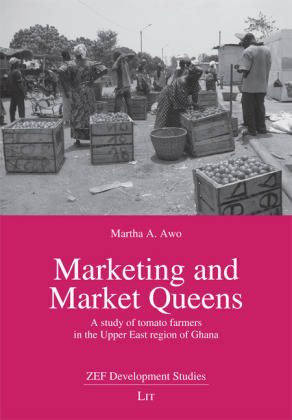
Bedankt voor het vertrouwen het afgelopen jaar! Om jou te bedanken bieden we GRATIS verzending (in België) aan op alles gedurende de hele maand januari.
- Afhalen na 1 uur in een winkel met voorraad
- In januari gratis thuislevering in België
- Ruim aanbod met 7 miljoen producten
Bedankt voor het vertrouwen het afgelopen jaar! Om jou te bedanken bieden we GRATIS verzending (in België) aan op alles gedurende de hele maand januari.
- Afhalen na 1 uur in een winkel met voorraad
- In januari gratis thuislevering in België
- Ruim aanbod met 7 miljoen producten
Zoeken
Marketing and Market Queens
A study of tomato farmers in the Upper East region of Ghana
Martha A Awo
€ 29,45
+ 58 punten
Omschrijving
This book analysis how global, regional and national trade policies have influenced the domestic agricultural food market in Ghana. Through a detailed investigation of the tomato sector in the Upper East Region, a theoretical analysis of risks, power and the moral market, shows a complex market structure dominated by powerful tomato market queens who control the market. Empirical evidence reveals a market chain captured by local actors at various levels who in an attempt to protect their position exhibit a moral obligation towards traders by assisting them to buy at cheap prices at the farm gate. At a higher level, the book presents challenges confronting Ghanaian tomato farmers as they are faced with flooding of the domestic market with tomato paste from European countries and weak processing sector. Compounding their problem is regional competitions from Burkina Faso farmers.
Specificaties
Betrokkenen
- Auteur(s):
- Uitgeverij:
Inhoud
- Aantal bladzijden:
- 192
- Taal:
- Engels
- Reeks:
- Reeksnummer:
- nr. 21
Eigenschappen
- Productcode (EAN):
- 9783643902344
- Uitvoering:
- Paperback
- Afmetingen:
- 147 mm x 210 mm

Alleen bij Standaard Boekhandel
+ 58 punten op je klantenkaart van Standaard Boekhandel
Beoordelingen
We publiceren alleen reviews die voldoen aan de voorwaarden voor reviews. Bekijk onze voorwaarden voor reviews.









